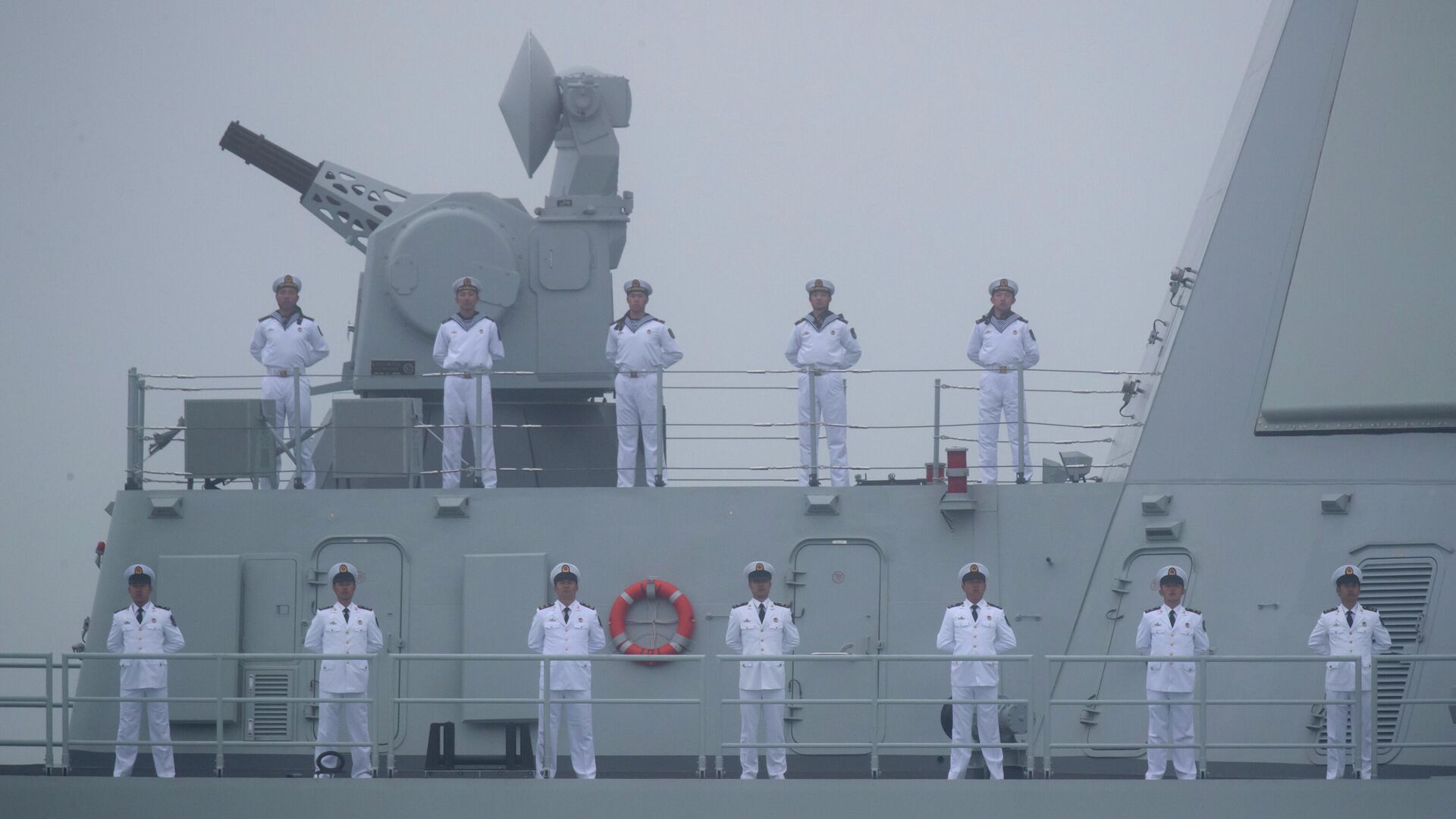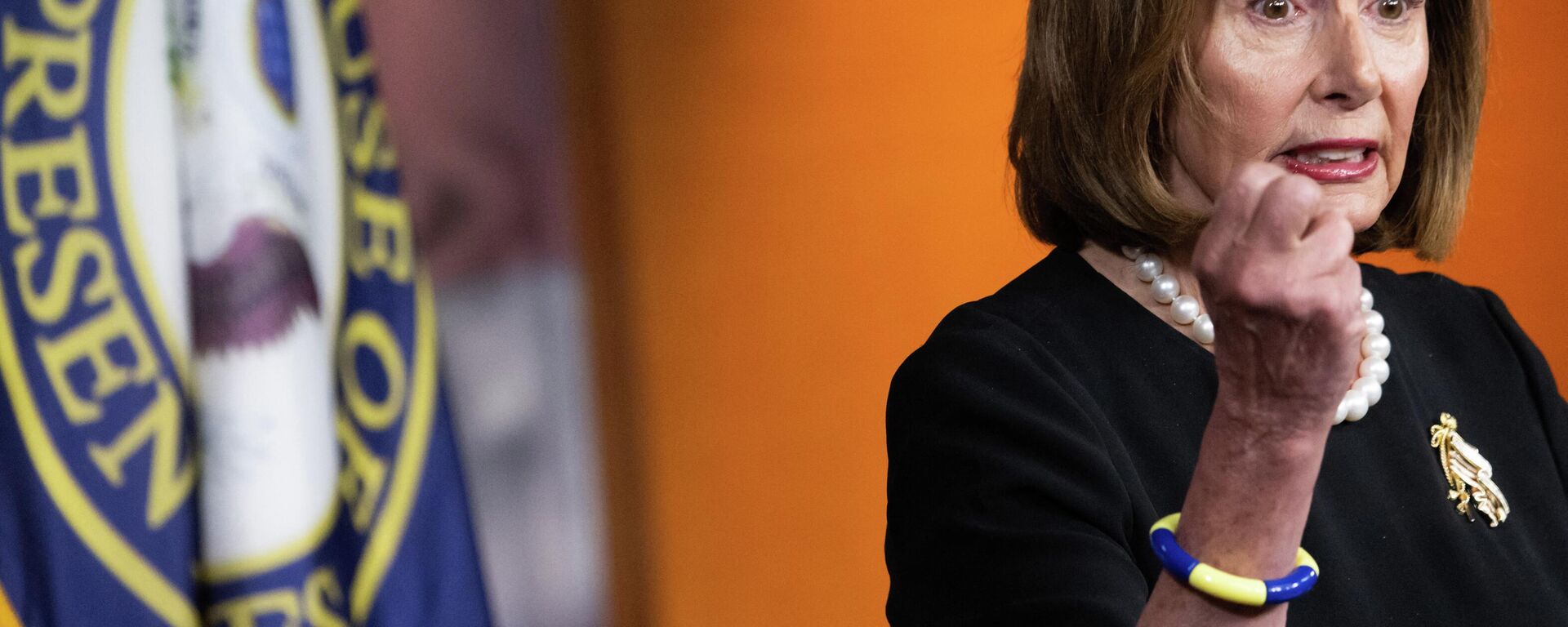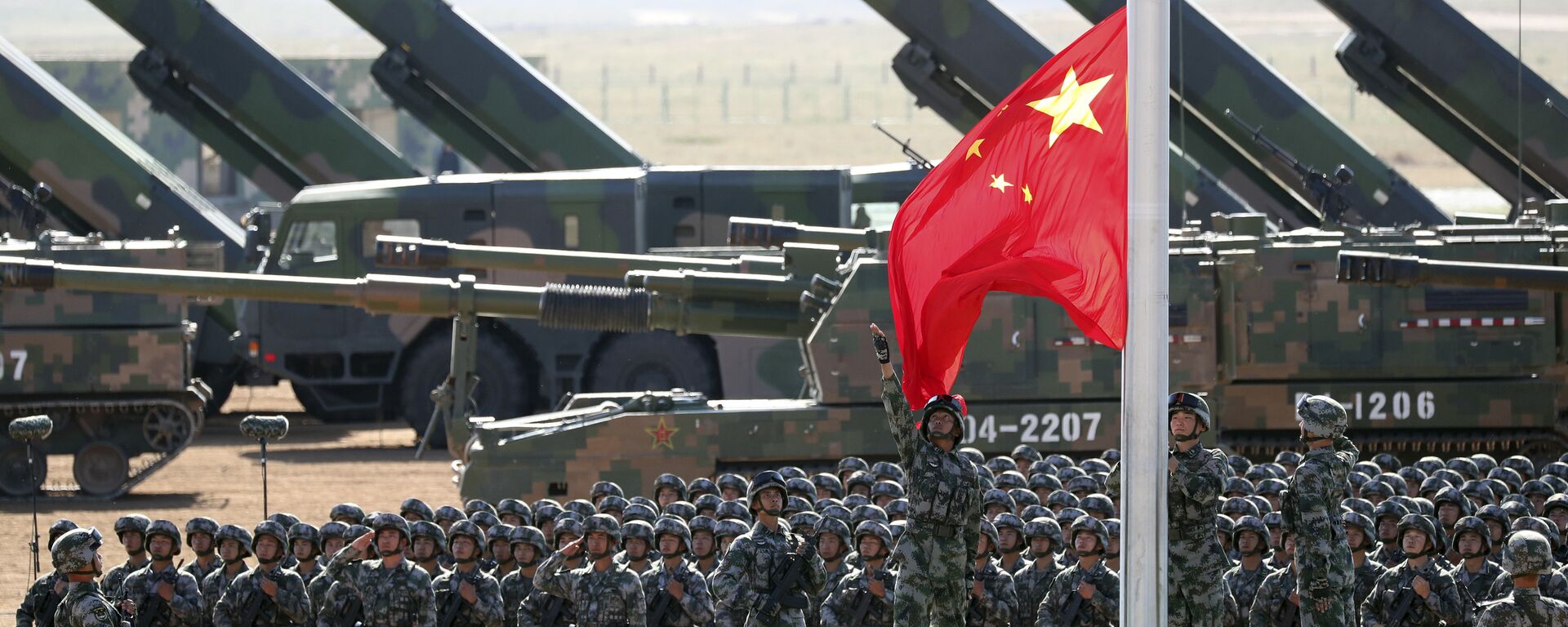https://sputnikglobe.com/20220801/pelosis-taiwan-visit-us-has-driven-itself-into-corner--risks-losing-face-chinese-scholar-says-1098006397.html
Pelosi's Taiwan Visit: US Has Driven Itself Into Corner & Risks Losing Face, Chinese Scholar Says
Pelosi's Taiwan Visit: US Has Driven Itself Into Corner & Risks Losing Face, Chinese Scholar Says
Sputnik International
House Speaker Nancy Pelosi may visit Taiwan on August 2, according to Taiwanese newspaper the China Times as well as CNN, which reported Pelosi's upcoming... 01.08.2022, Sputnik International
2022-08-01T15:52+0000
2022-08-01T15:52+0000
2023-06-19T12:44+0000
us
asia
china
taiwan strait
nancy pelosi
joe biden
us-china tensions over taiwan
taiwan
https://cdn1.img.sputnikglobe.com/img/07e5/0c/07/1091315707_0:301:3072:2029_1920x0_80_0_0_6dadf8ff151ccc17f5a1a6b491d29704.jpg
"If Pelosi does visit Taiwan, it could lead to military clashes in the Taiwan Strait," said Qian Yaxu, a fellow of the US Research Center at the Xinan Transportation University. "If Pelosi refuses to visit Taiwan, it will deal a colossal blow to the US international reputation."Pelosi's possible trip to Taiwan, the island which is seen as an inalienable part of China by Beijing, has been discussed since April 2022. In the spring, the House speaker canceled her visit, reportedly after testing positive for COVID-19.In July, US officials informally speculated that Pelosi's stop in Taiwan could be part of her Asian tour in August. If she lands in Taipei, this would be the first time a high-ranking US politician visits the island in 25 years. The last visit was from Newt Gingrich, then-speaker of the US House of Representatives, who arrived on the island in 1997.Beijing has reacted harshly to Pelosi's possible plans, with the People's Liberation Army (PLA) launching live fire drills amid reports of the House speaker's possible arrival in Taipei.However, US National Security Council spokesman John Kirby shifted the responsibility to Pelosi, saying it was her own decision whether to visit Taiwan." On August 1, Kirby also insisted that the threats over Pelosi's possible trip to Taiwan are "not uncommon," arguing that the US "shouldn’t be intimidated by [China's] rhetoric or... potential actions."The US has driven itself into a corner and risks losing face if it backs down, Qian went on to remark.Chinese media suggests that Pelosi may opt for a trick to avoid this conundrum, including possible plans for her plane to make an allegedly forced technical landing in Taiwan, given that the sky over Taiwan is likely to be actively patrolled by Chinese military aircraft which may lead to undesired air incidents, Chinese observers warn.For its part, Chinese newspaper the Global Times does not rule out that Pelosi's trip "may push China's reunification.""Pelosi's back-and-forth moves over the Taiwan question in the past few months reflect US politicians' short-sightedness and the country's strategic bluff as a paper tiger," wrote Wang Wen, executive dean of the Chongyang Institute for Financial Studies at Renmin University of China, in his op-ed. "It's obvious that American politicians have underestimated China's strategic will to safeguard national sovereignty.”Nonetheless, Wang believes in "the ultimate strategic rationality of China and US," stressing that Chinese President Xi Jinping and his US counterpart Joe Biden "have some consensus."Meanwhile, Taiwan is by no means benefitting from the emerging crisis. If hostilities begin in the Taiwan Strait, the island would find itself in nothing short of an economic blockade. If Washington gives in to China's pressure, this would mean that Taipei cannot rely on the US. The island's economic indicators have already worsened with the Taiwanese dollar plummeting to its lowest level since June 2020.
https://sputnikglobe.com/20220730/taiwan-washingtons-clumsiness-may-push-us-china-relations-to-point-of-no-return-scholar-says-1097962842.html
https://sputnikglobe.com/20220729/katy-bar-the-door-why-pelosis-trip-to-taiwan-is-fraught-with-risk-of-military-escalation-1097942073.html
china
taiwan
Sputnik International
feedback@sputniknews.com
+74956456601
MIA „Rossiya Segodnya“
2022
News
en_EN
Sputnik International
feedback@sputniknews.com
+74956456601
MIA „Rossiya Segodnya“
Sputnik International
feedback@sputniknews.com
+74956456601
MIA „Rossiya Segodnya“
us, china, taiwan strait, nancy pelosi, joe biden, taiwan
us, china, taiwan strait, nancy pelosi, joe biden, taiwan
Pelosi's Taiwan Visit: US Has Driven Itself Into Corner & Risks Losing Face, Chinese Scholar Says
15:52 GMT 01.08.2022 (Updated: 12:44 GMT 19.06.2023) House Speaker Nancy Pelosi may visit Taiwan on August 2, according to Taiwanese newspaper the China Times as well as CNN, which reported Pelosi's upcoming visit citing senior Taiwanese and US government officials.
"If Pelosi does visit Taiwan, it could lead to military clashes in the Taiwan Strait," said Qian Yaxu, a fellow of the US Research Center at the Xinan Transportation University. "If Pelosi refuses to visit Taiwan, it will deal a colossal blow to the US international reputation."
Pelosi's possible trip to Taiwan, the island which is seen as an inalienable part of China by Beijing, has been discussed since April 2022. In the spring, the House speaker canceled her visit, reportedly after testing positive for COVID-19.
In July, US officials informally speculated that Pelosi's stop in Taiwan could be part of her Asian tour in August. If she lands in Taipei, this would be the first time a high-ranking US politician visits the island in 25 years. The last visit was from Newt Gingrich, then-speaker of the US House of Representatives, who arrived on the island in 1997.
Beijing has reacted harshly to Pelosi's possible plans, with the People's Liberation Army (PLA) launching live fire drills amid reports of the House speaker's possible arrival in Taipei.
"Earlier, the heads of [the People's Republic of China and the US] held telephone conversations, during which China clearly drew a red line, warning the United States that one who plays with fire may burn oneself," explained the Chinese scholar. "At the same time, [US President Joe] Biden reaffirmed the United States' commitment to the 'One China' principle, saying that he did not support any action related to the island's independence.
However, US National Security Council spokesman John Kirby shifted the responsibility to Pelosi, saying it was her own decision whether to visit Taiwan." On August 1, Kirby also insisted that the threats over Pelosi's possible trip to Taiwan are "not uncommon," arguing that the US "shouldn’t be intimidated by [China's] rhetoric or... potential actions."
The US
has driven itself into a corner and risks losing face if it backs down, Qian went on to remark.
"In the eyes of the entire world, the decline of the United States would become an obvious fact," the researcher said. "China can use diplomacy and public opinion to keep the US from crossing China's red lines. This will strengthen China's influence around the world. China has always advocated peaceful development and rational dialogue with the United States. If the trend towards China's rise and the United States' decline strengthens, this could create the basis for a more rational development of Sino-American relations."
Chinese media suggests that Pelosi may opt for a trick to avoid this conundrum, including possible plans for her plane to make an allegedly forced technical landing in Taiwan, given that the sky over Taiwan is likely to be actively patrolled by Chinese military aircraft which may lead to undesired air incidents, Chinese observers warn.
For its part, Chinese newspaper the Global Times
does not rule out that Pelosi's trip "may push China's reunification."
"
Pelosi's back-and-forth moves over the Taiwan question in the past few months reflect US politicians' short-sightedness and the country's strategic bluff as a paper tiger," wrote Wang Wen, executive dean of the Chongyang Institute for Financial Studies at Renmin University of China, in his op-ed. "It's obvious that American politicians have underestimated China's strategic will to safeguard national sovereignty.”
Nonetheless, Wang believes in "the ultimate strategic rationality of China and US," stressing that Chinese President Xi Jinping and his US counterpart Joe Biden "have some consensus."
Meanwhile, Taiwan is by no means benefitting from the emerging crisis. If hostilities begin in the Taiwan Strait, the island would find itself in nothing short of an economic blockade. If Washington gives in to China's pressure, this would mean that Taipei cannot rely on the US. The island's economic indicators have already worsened with the Taiwanese dollar plummeting to its lowest level since June 2020.




